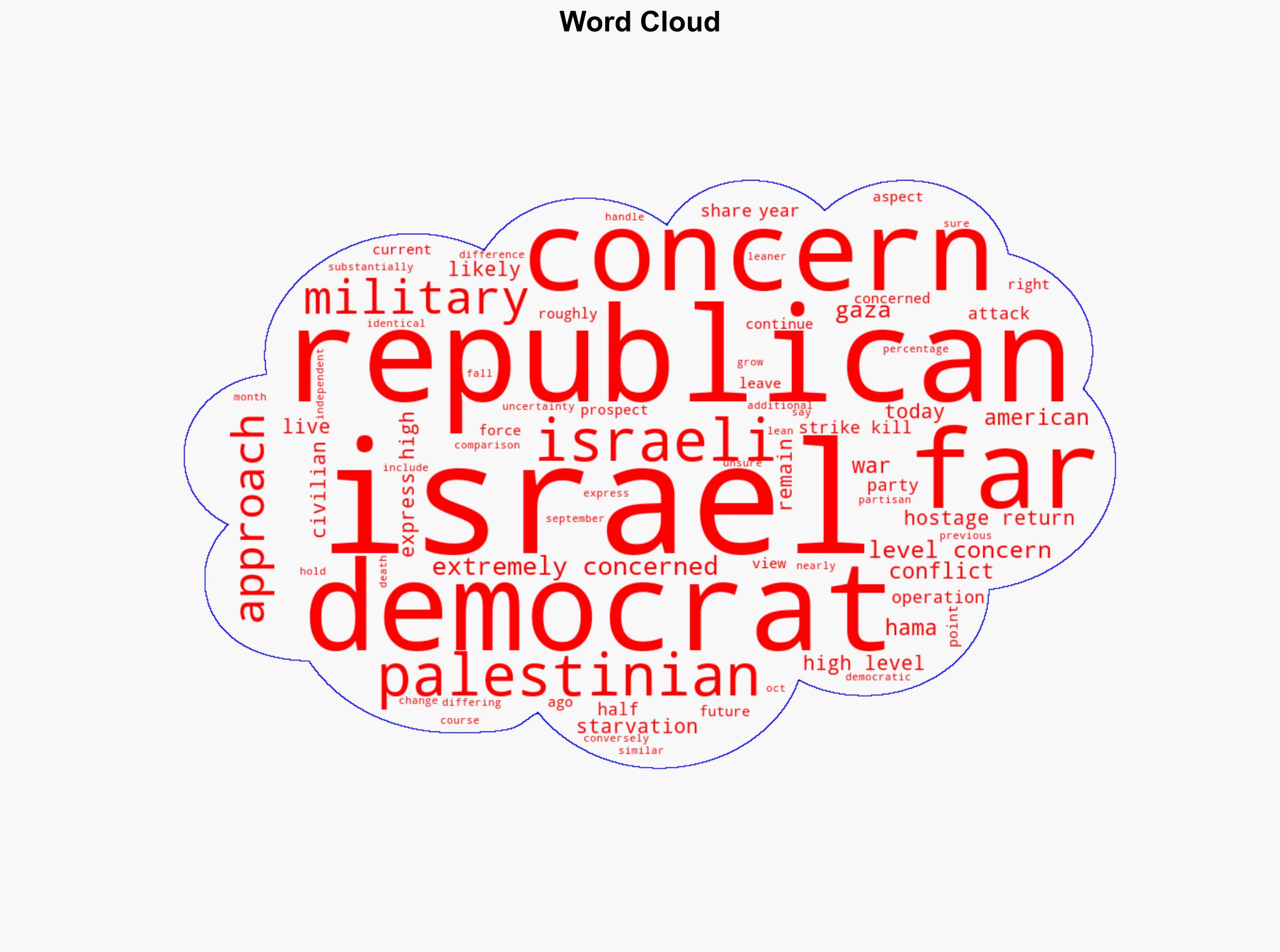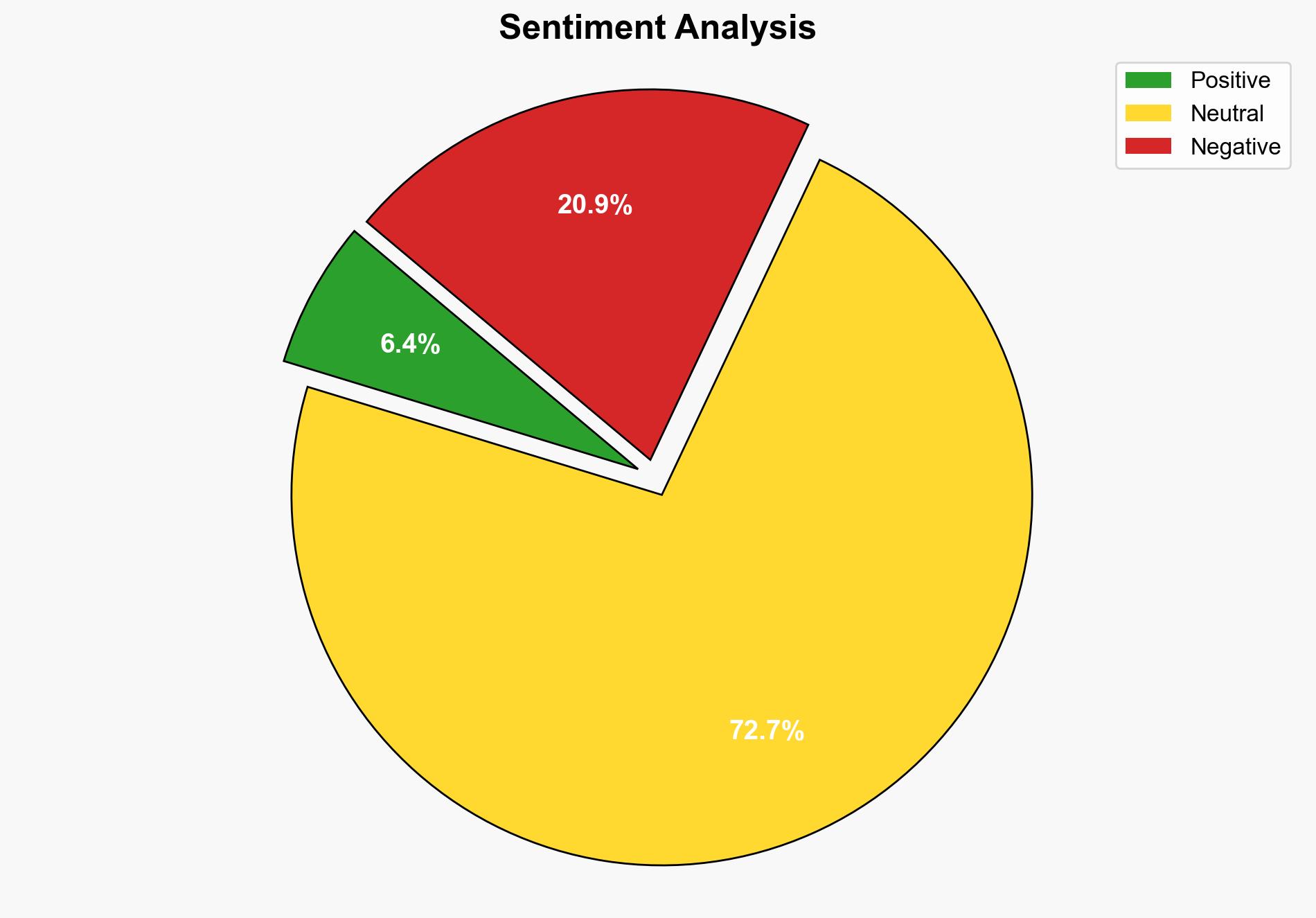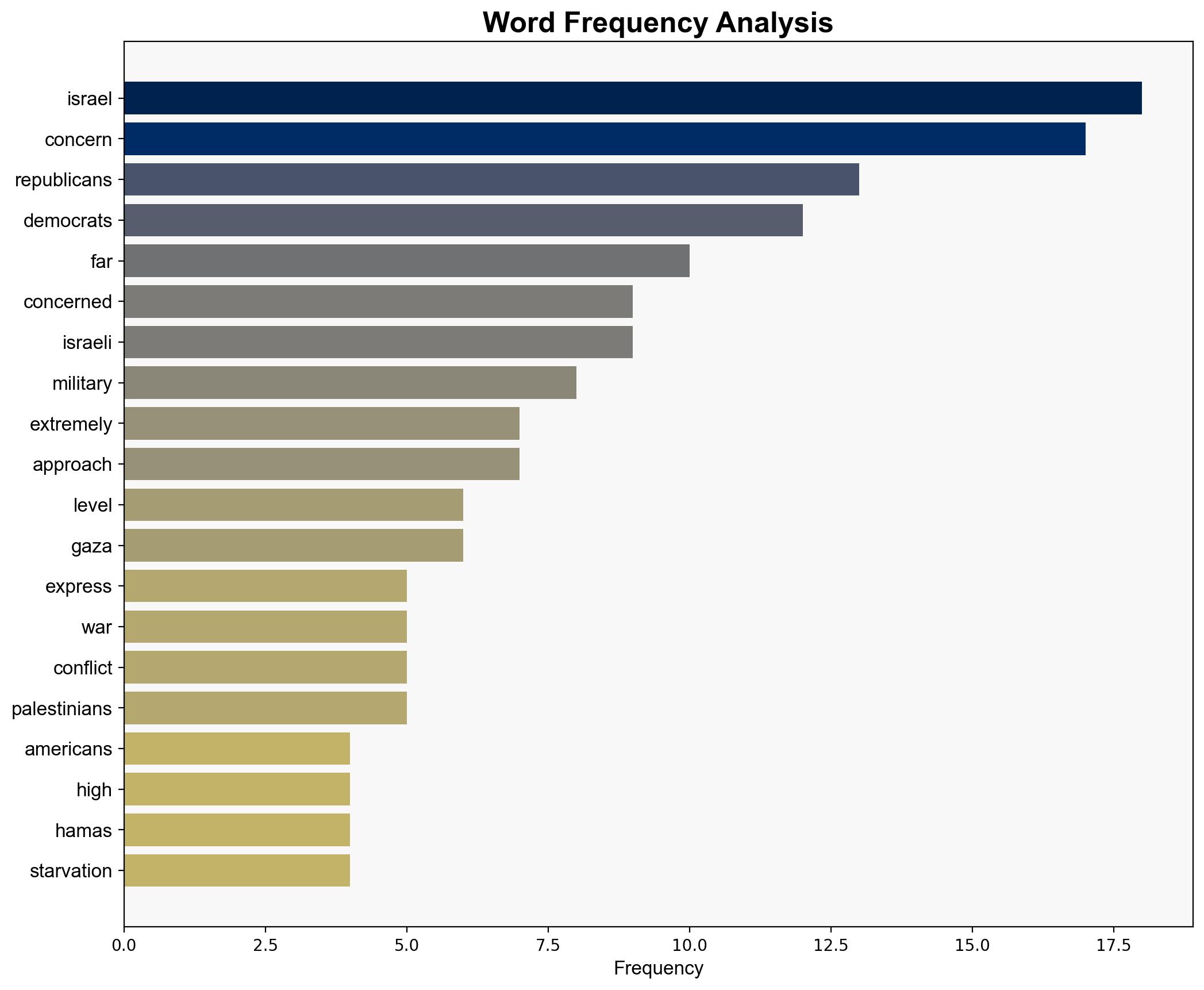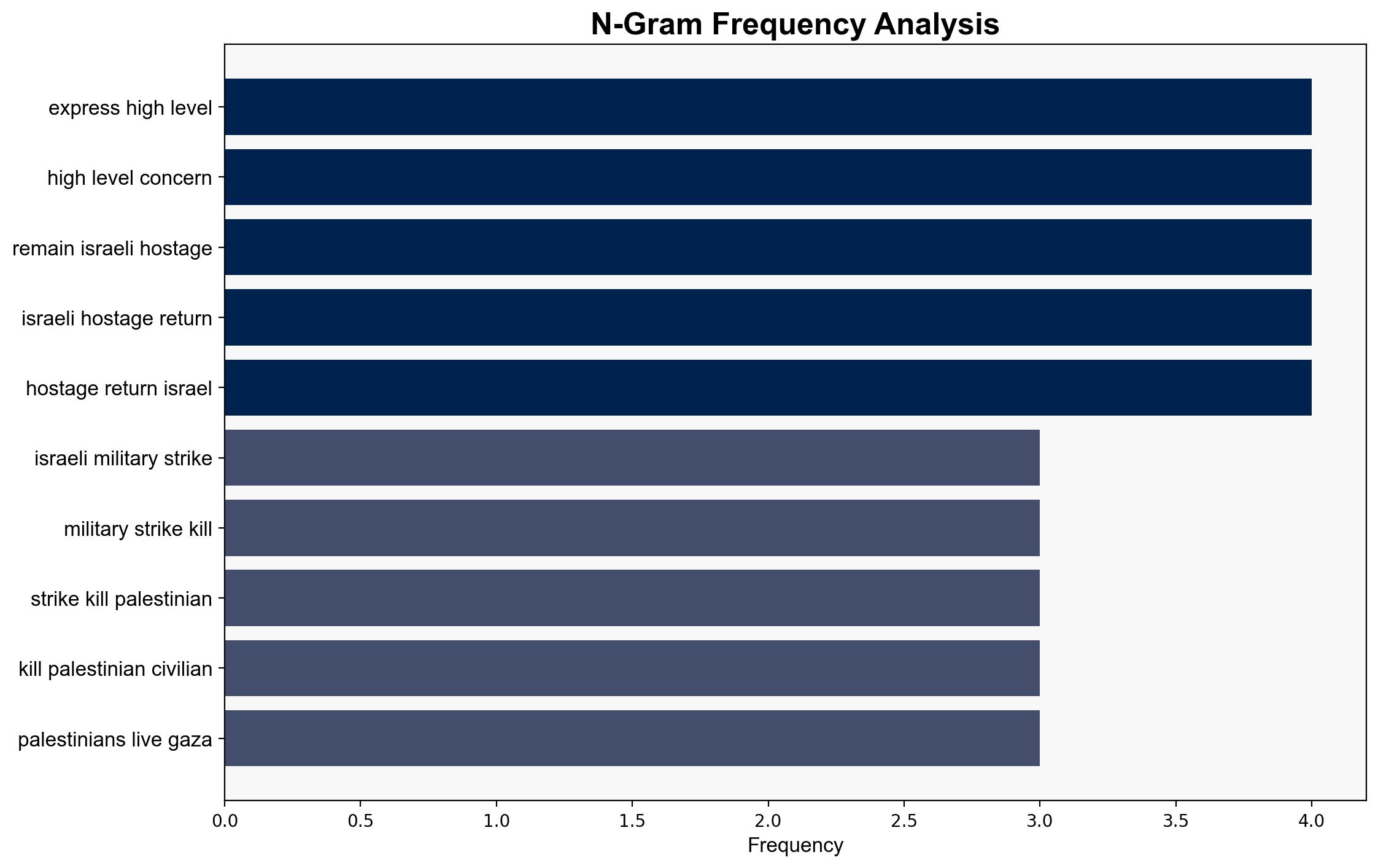3 Concerns about the conflict between Israel and Hamas – Pew Research Center
Published on: 2025-10-03
Intelligence Report: 3 Concerns about the conflict between Israel and Hamas – Pew Research Center
1. BLUF (Bottom Line Up Front)
The analysis reveals a significant partisan divide in American public opinion regarding the Israel-Hamas conflict, with Democrats more concerned about humanitarian impacts and Republicans more focused on security threats. The most supported hypothesis suggests that these partisan differences will continue to influence U.S. foreign policy stances and public discourse. Confidence level: Moderate. Recommended action: Monitor shifts in public opinion and their potential impact on U.S. foreign policy decisions.
2. Competing Hypotheses
Hypothesis 1: Partisan differences in concern over the Israel-Hamas conflict will lead to divergent policy approaches and public discourse in the U.S., potentially affecting diplomatic efforts and international relations.
Hypothesis 2: Despite partisan differences, a consensus on key humanitarian and security issues will emerge, leading to a unified U.S. stance that could facilitate conflict resolution efforts.
Using the Analysis of Competing Hypotheses (ACH) 2.0, Hypothesis 1 is better supported due to the persistent and significant partisan divides highlighted in the data, particularly concerning humanitarian concerns and security threats.
3. Key Assumptions and Red Flags
Assumptions include the belief that public opinion directly influences policy decisions and that partisan divides will persist. A red flag is the potential for cognitive bias in interpreting data through a partisan lens, which could obscure nuanced shifts in public opinion. Missing data on independent voters’ perspectives could skew analysis.
4. Implications and Strategic Risks
The partisan divide may hinder cohesive policy-making, increasing the risk of inconsistent U.S. foreign policy. This could lead to geopolitical instability, affecting alliances and regional security dynamics. Economic implications include potential impacts on defense spending and humanitarian aid allocations.
5. Recommendations and Outlook
- Monitor public opinion trends to anticipate shifts in policy stances.
- Engage bipartisan dialogue to bridge divides and foster consensus on humanitarian and security priorities.
- Scenario Projections:
- Best Case: Bipartisan consensus leads to effective U.S. mediation in the conflict.
- Worst Case: Partisan divides exacerbate geopolitical tensions and hinder conflict resolution.
- Most Likely: Continued partisan discourse with incremental policy adjustments.
6. Key Individuals and Entities
No specific individuals are mentioned in the source text. Analysis focuses on partisan groups (Democrats and Republicans) as entities influencing public opinion and policy.
7. Thematic Tags
national security threats, geopolitical dynamics, public opinion, U.S. foreign policy, humanitarian concerns





